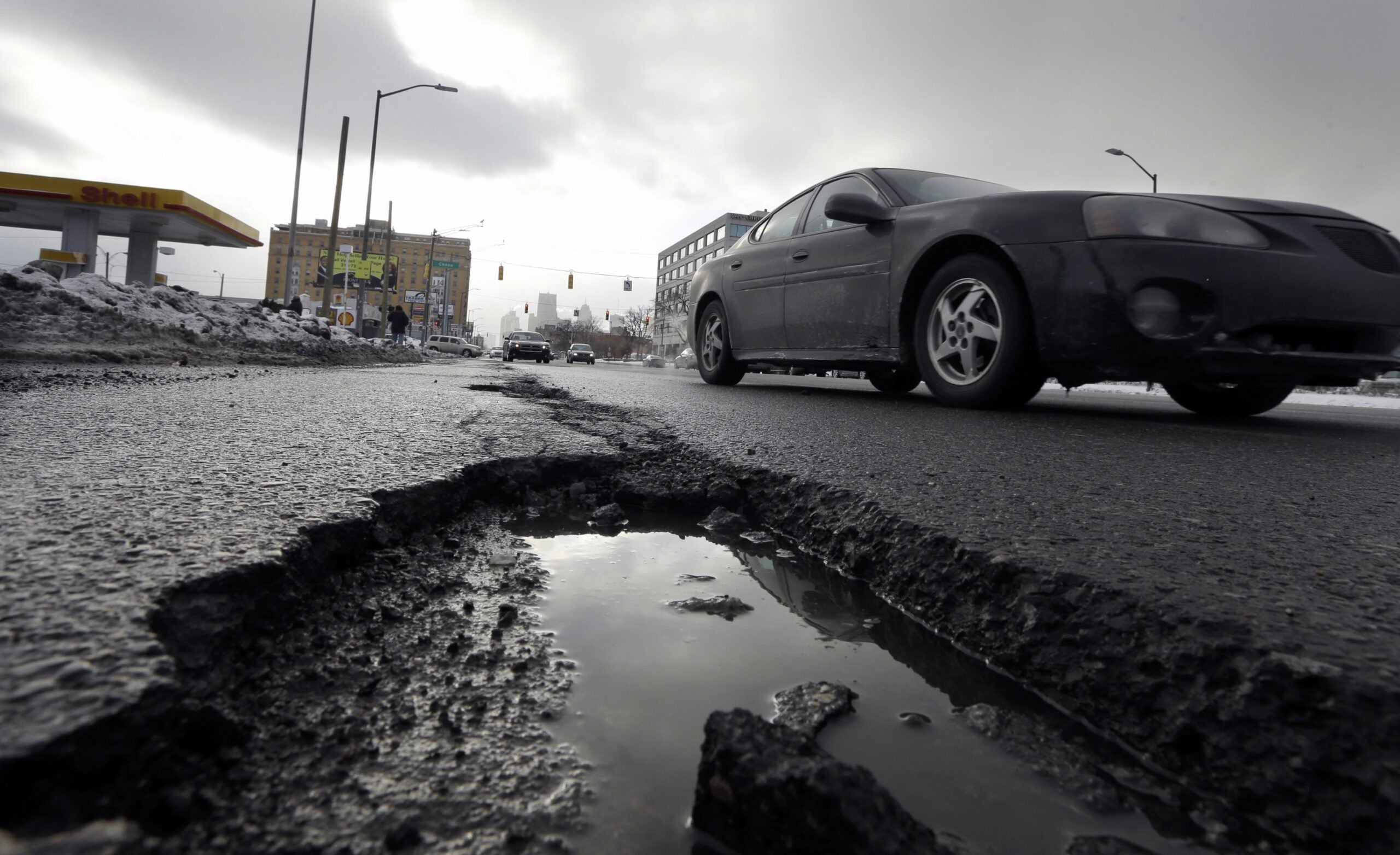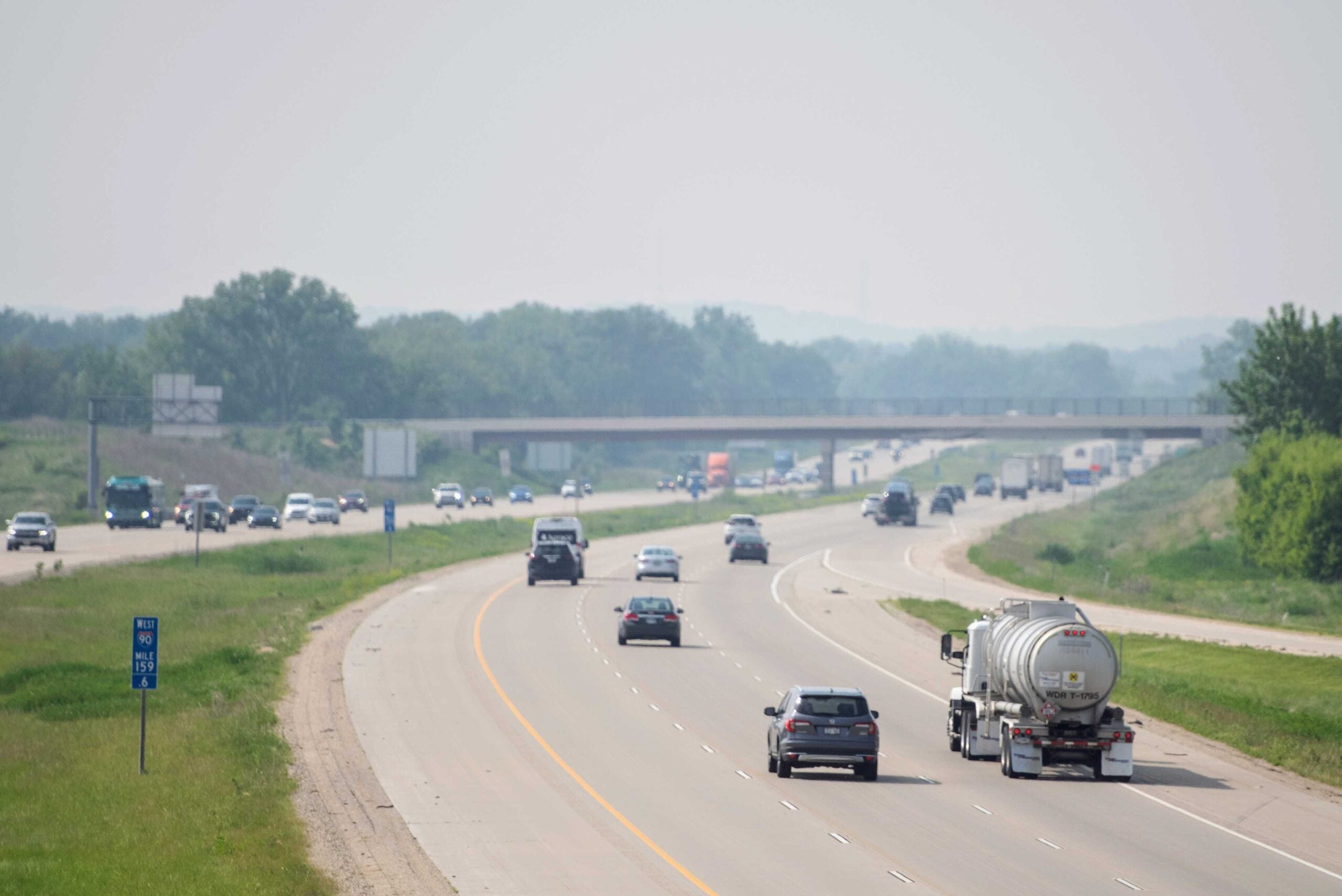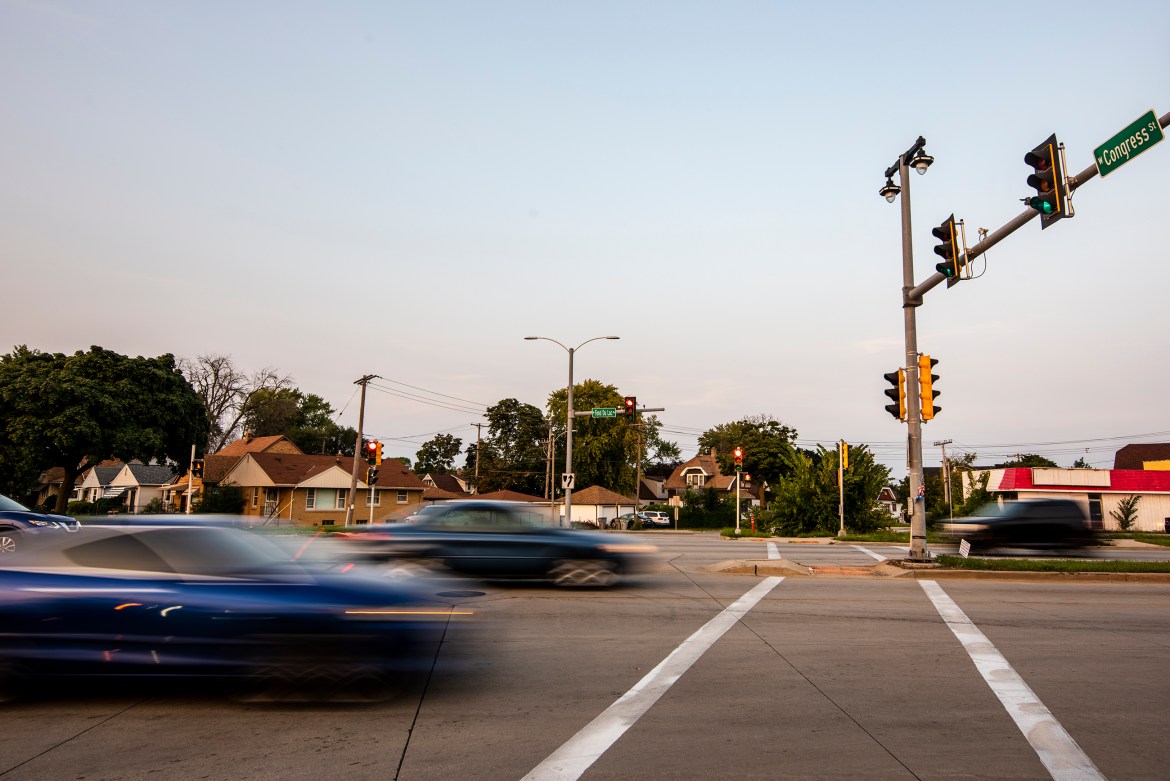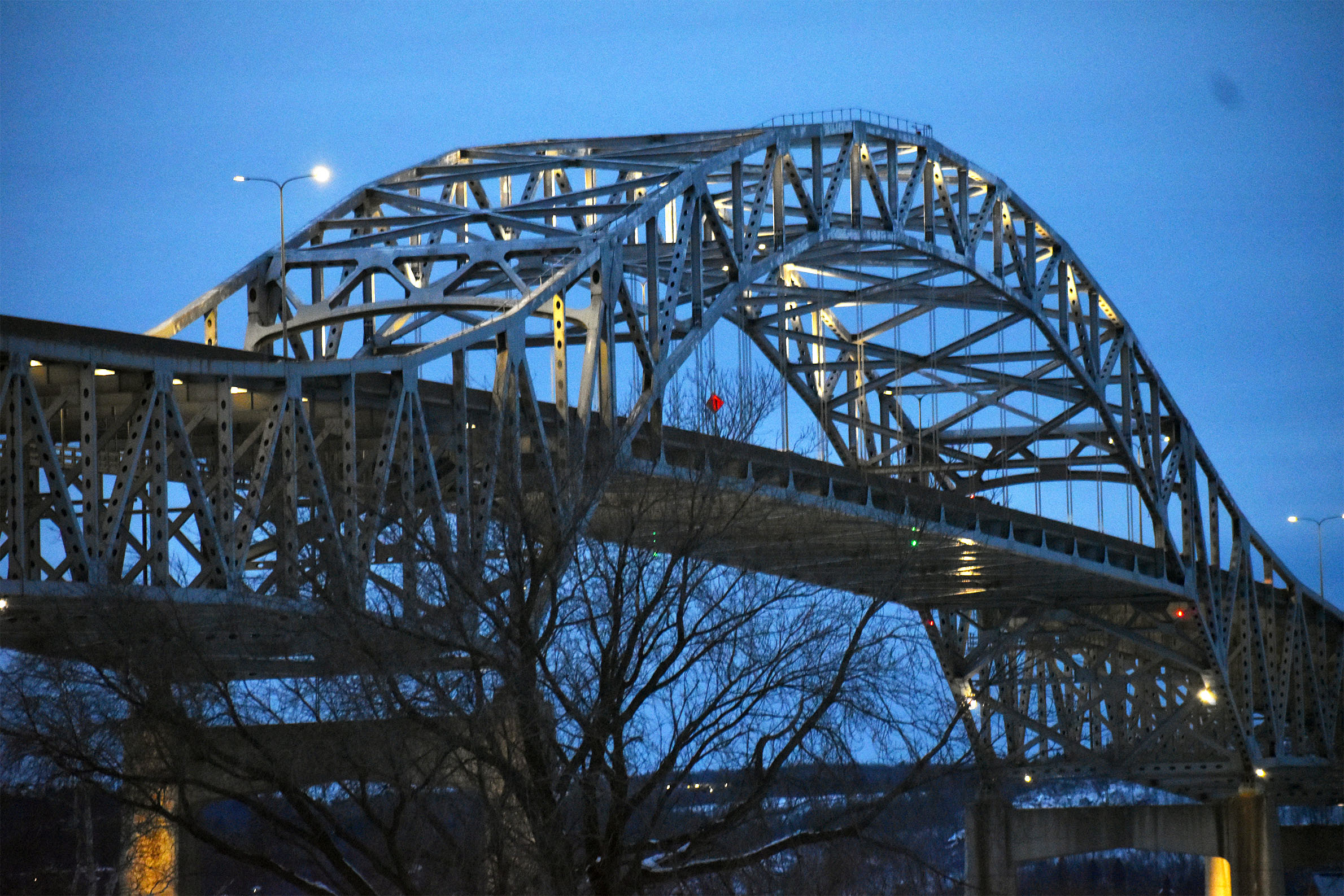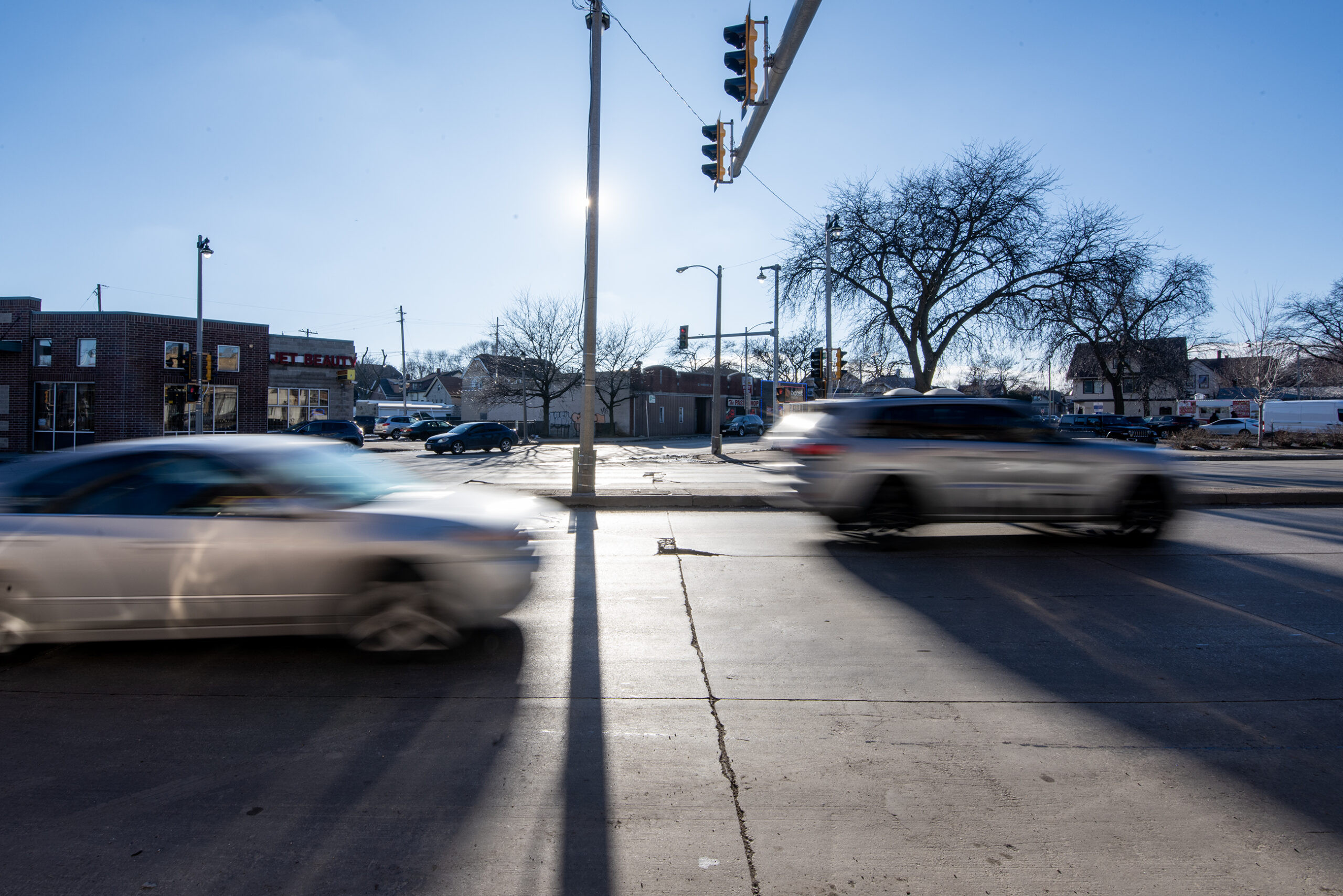Drivers have made 8,000 requests for pothole repairs to their vehicles so far this year in Milwaukee. That’s compared to 3,000 last year.
A total of 45 claims have been made against the city, which has been asked to pay $28,461 (though no dollars have been paid out) to address pothole-related damage.
That uptick since last year could be because of a record-breaking winter that wreaked havoc on the state’s roads, and further weakened roadways in densely-packed, high traffic areas such as Milwaukee.
News with a little more humanity
WPR’s “Wisconsin Today” newsletter keeps you connected to the state you love without feeling overwhelmed. No paywall. No agenda. No corporate filter.
“The number of potholes certainly is affected by that difficult winter,” said Dan Fedderly, executive director of the Wisconsin County Highway Association.
But it’s more than that, he said: It really comes down to a lack of investment in Wisconsin’s transportation infrastructure, especially with increased truck weights and more traffic.
How Potholes Form
The surface people drive on — the asphalt — can be likened to the shingles on a roof of a house, said Fedderly, also a professional engineer and land surveyor. Underneath the asphalt is the structure of the roadway that carries the weight on the cars, trucks and other vehicles.
The asphalt can develop cracks that water can seep into. In the wintertime, salt combines with precipitation and when that begins to thaw inside the cracks, the structural base underneath begins to soften. That causes pavement to break when it’s run over by vehicles.
“You end up with a pothole in areas where that water has saturated the base and you don’t have any structural support under the pavement anymore,” he said.
In especially wet winters and springs, the problem is amplified because water saturates the base, which never gets an opportunity to dry out. Meanwhile, vehicles continue passing over that weaker pavement.
Fedderly said there are numerous products that can be used to fill potholes — some are less susceptible to cold weather; others are softer and easier to flatten into the potholes. More permanent repairs also offer some solution, but those require replacing the blacktop and the saturated base, which is time-consuming and not a best practice along busy streets.
Funding For Roads
Describing road funding as “absolutely critical” for the state, Fedderly said the infrastructure is at a “crisis” point.
“Potholes are simply symptomatic of that system decline,” he said.
Pothole repairs are paid for via general maintenance funds of local government units, Fedderly said. Those are funded through property tax dollars, which can pose some restrictions for communities limited by local levy limits.
Other funding comes from general transportation aid, which is a specific state budget item that in effect is a redistribution of some of the gas taxes and registration fees.
“The state and the Legislature’s inability to fully fund the long-term sustainable transportation in Wisconsin is showing up in terms of the roadway conditions,” he said.
That in turn affects revenue generators, such as tourism, and moving commerce through the state.
“It didn’t take us one year or one budget to get here,” he said. “It certainly won’t take one year or one budget to get out.”
Reporting Potholes
Fedderly, who worked as a highway commissioner for 15 years, said it’s absolutely worth it to report potholes to local agencies.
Highway departments generally have section crews — people who monitor the roadways — as one of the mechanisms keeping track of where the potholes are.
Whether the complaints come from drivers or through reports of section crews, Fedderly said the response includes investigating the report and providing the workers, machinery and material to address the problem.
“People reporting is absolutely essential in anything, not just potholes, but issues with culverts, holes and trees down,” he said.
Wisconsin Public Radio, © Copyright 2025, Board of Regents of the University of Wisconsin System and Wisconsin Educational Communications Board.

